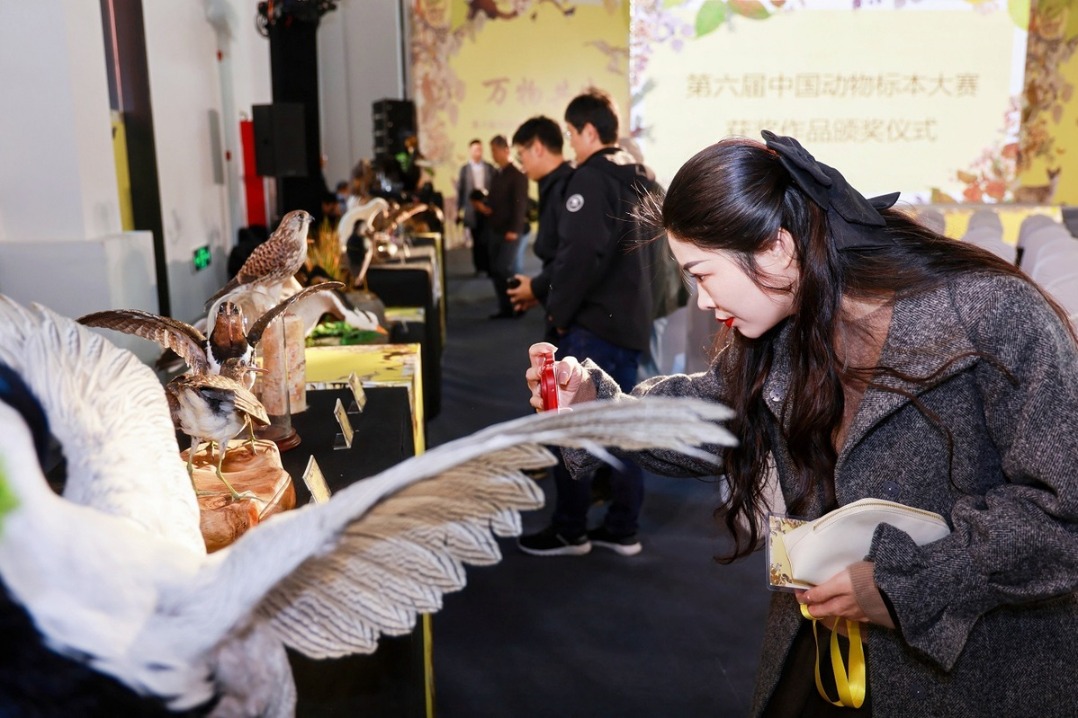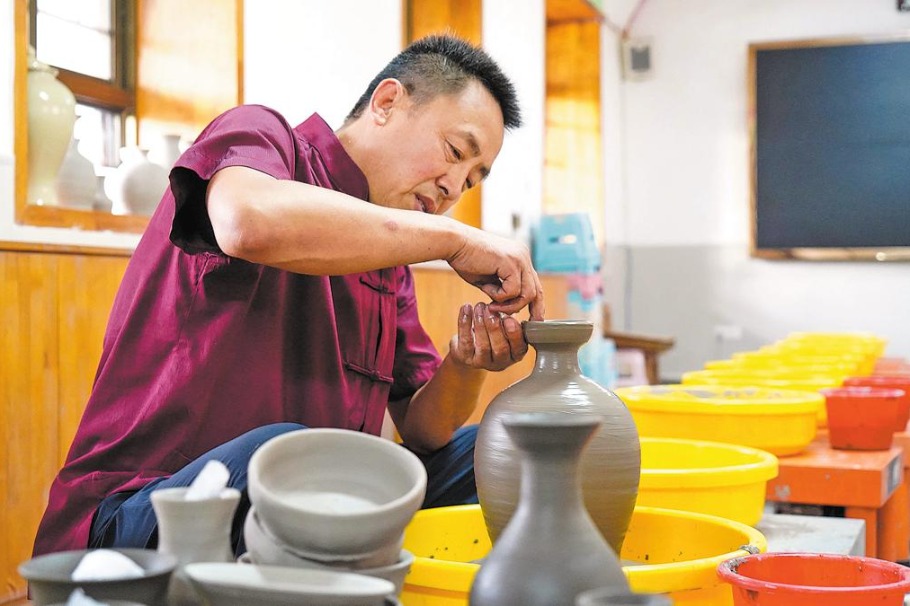'Genius' scientist sees duty to share research


The Beidou goddess' witty explanations have attracted a huge following online
With a faint smile, shoulder length hair and wearing a black leather jacket with arms across her chest, Xu Ying graces the cover of a youth magazine.
Is Xu a rock star? No, she is a scientist.
The 36-year-old leads a team at China's prime natural sciences research institute developing the ground system and augmentation technology of China's Beidou navigation satellites.
Named after the Chinese term for the Big Dipper constellation, Beidou is one of the four space-based navigation networks operating globally, along with the United States' GPS system, Russia's GLONASS and the European Union's Galileo.
Born in Southwest China's Sichuan province, Xu went to school at the age of 4 and attended university in Beijing at the age of 16. Her interests from an early age were in science, especially physics.
"I enjoy the process of finding and solving problems, which gives me a sense of accomplishment," Xu said.
She participated in the application research of the Beidou 2 satellites in 2006. Three years later, she started work at the Chinese Academy of Sciences after her postgraduate studies. At the age of 32, Xu became the academy's youngest doctoral supervisor in 2015.
Many see her as a genius, but Xu sees herself as a young researcher and an ordinary woman who likes "eating snacks and shopping to disengage from work and release stress".
When she was asked whether women are suited to scientific research, Xu replied, "Judging by gender is no different from judging by star signs. It is not scientific at all!"
Xu rose to fame after a public lecture in 2016.
At that time, the second-generation Beidou system was completed, with a network of 14 navigation satellites offering positioning, velocity measurement, timing and communication services to the Asia-Pacific region.
To help the public understand the Beidou system and its development, Xu drew amusing analogies in her lecture.
Beidou satellites can provide short message services to millions of subscribers. "You all probably know the story of Robinson Crusoe," she said. "Let's imagine a man washed ashore on a remote desert island. If he had GPS, he would only know where he was, but could not call for help, and so he would still have to struggle in the wild.
"But if he had a Beidou receiver, the situation would be completely different. It would tell him where he was, and could send details of his position to people hundreds, or even thousands of miles away."
Xu recalled a tense moment during the first Beidou satellite launch, when a sudden equipment failure was solved just four minutes before liftoff. She described how the ninth satellite was launched during a thunderstorm, adding that it successfully avoided being hit by lightning. She presented applications of the system which included tracking wild animals, controlling forest fires, and searching for ships in trouble.
She explains esoteric research in a language people can understand, said science writer Wang Dapeng.
"She is a rare young scientist who has made outstanding achievements in both research and science popularization," Wang said.
Like every celebrity, she had to deal with her own share of rumors.
A popular rumor went around in 2011 that a college student had broken the codes of the Beidou system, suggesting that its precision and reliability were inferior to those of foreign rivals.
Xu pointed out that Beidou provided signals for both civilian and military users, but the student only cracked the civilian codes, which were not actually encrypted and posed no risk to the system.
Like GPS and GLONASS, Xu said Beidou has a free civilian service and there are no special civilian codes. "We hope the Beidou system can be used by people around the world," she said.
She also has a message for anyone wanting to crack Beidou's military codes.
"Make a time machine that can take you back to the day we designed the military codes, and then stand by and eavesdrop. Technically, making a time machine would be easier than breaking the codes," she said.
Xu's frank, witty, and well-founded explanations have attracted millions of hits and shares on China's social media, where she is known as the "Beidou Goddess".
People's Daily commented that "science popularization needs more Xu Yings". The newspaper said her speech was "wonderful" and should be a lesson for other scientists.
Since then, Xu has been a regular public speaker, frequenting science television programs and lectures. Last year, Beidou started to provide global services, and Xu's audience expanded to include more scientists from other countries.
Xu has been named an ambassador for China's Scientific Communication by the China Association for Science and Technology, along with Ouyang Ziyuan, chief scientist of China's lunar exploration plan, and Yang Liwei, the country's first astronaut.
China will launch 10 Beidou satellites this year and will complete the global network by 2020.
Though Xu is busier than ever, she still continues to promote science publicly. She believes scientists have a duty to share their research with the public.
"Good science popularization must be veracious, entertaining, and to fight scientific fraud and misconduct," Xu said. "I will continue to work on science popularization, and inspire more people to explore the unknown world and respect science."
Xinhua
- Ban on interference in ethnic affairs mooted
- Two new high-speed rail lines boost agriculture, industry in Guangdong
- Revised natl development planning bill submitted
- Chinese doctors improve Malagasy medical results
- Gene designing delivers crops with higher yields
- Tea sector blends commerce with cross-Strait exchanges





































